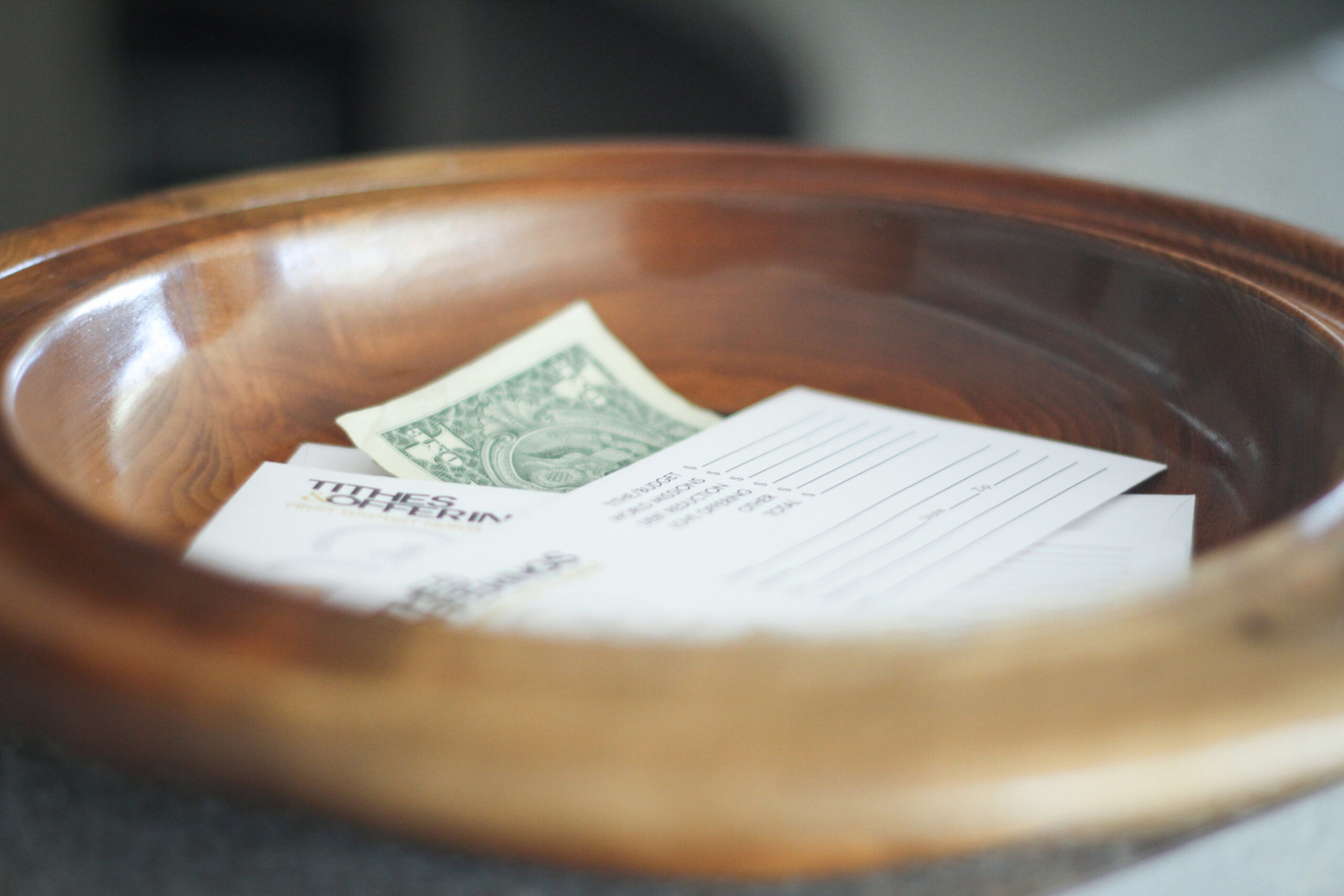Like many Americans this week, I dutifully set aside time to prepare my tax returns. As I gathered the necessary documents and logged into my Realm church software account to print my giving statement, I began to think about my household budget. Am I doing my full part as a faithful Catholic and member of my parish community and making sacrificial offerings of the resources I have been blessed with? I concluded it is time for me to reevaluate my current charitable endeavors and remind myself of the importance of stewardship.
As a child, well before the advent of online giving, a visit from my grandparents always included my sisters and I being handed either $2 bills or silver dollar coins, courtesy of our Grandma, to put in the offertory basket as it was passed around during Mass. The novelty of the $2 bill and for once being allowed to handle the basket (I am sure our mother was certain that one of us would drop it if she allowed us to pass the basket down the pew) distracted me from the real purpose of my grandmother facilitating our participation in the collection. It was one of the early lessons we received on charity and our Christian call to be faithful stewards of the gifts God bestowed on us.
Now, as an adult and equipped with a deeper understanding of my faith, I tend to wince anytime I see a church apply “God loves a cheerful giver” (2 Corinthians 9:7) as inspiration for their financial appeals or egiving launches. While certainly true, this passage fails to remind us of the importance of sacrificial giving, offered in the same spirit of Christ who gave himself for our salvation. I find that Jesus’ words to the Disciples about the poor widow’s offering at the temple are more powerful and speak to all faith-filled people regardless of the realities of our circumstances. Jesus said, “Truly I tell you, this poor widow has put in more than all of them; for they all contributed out of their abundance, but she out of her poverty put in all the living that she had.” (Luke 21:3-4.)
Certainly, no pastor would ever expect a member of his flock to make a gift that would jeopardize their household or family’s financial stability. However, all would say that sacrifices come in many forms. “Time, Talent, and Treasure” is a well-known phrase to Catholics, a concise statement of the charitable gifts we can, and should, make as part of our spiritual life. Spending four hours on a Saturday morning cooking a meal at our local homeless shelter, offering up our creative eye and organizational skills to assist in the planning of a parish celebration, or adding that $10 we might otherwise spend on the latest and greatest coffee concoction at Starbucks to our offertory donation all require us to sacrifice something of value to ourselves for the benefit of others.
While preparing my tax returns, I reviewed the various taxes withheld last year and, admittedly, grumbling over the amount despite knowing that a good portion would be refunded. I reminded myself that similar to the gifts I make to my parish community, the taxes we pay are intended to benefit our local, state, and federal communities. And while I might not always deem the government that collects my tax dollars to be good stewards of those funds, I know I can trust my pastor with the sacrificial gifts I make for my church community, no matter which forms they take.
For more Catholic blogs and other resources, please visit Church Growth.
A cradle Catholic and former pastoral staff member with the UNC Newman Catholic Student Center Parish, Kaitlin understands the challenges our ministry partners face every day. 4 years of utilizing Realm to overcome those challenges inspired her to join the ACS Technologies family in 2020. As a Market Strategy Analyst for the Catholic market, she draws on her “church lady” experience to address our Catholic clients’ unique needs.
Read More:




